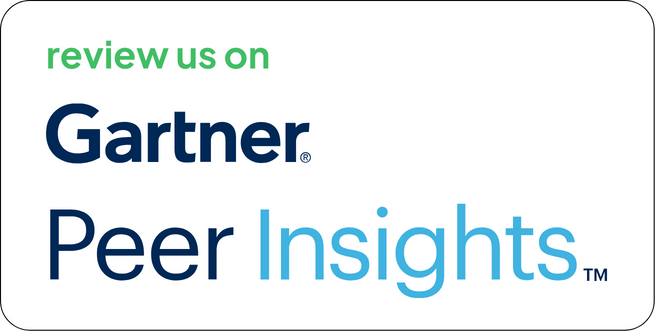July 2024 has surfaced a series of significant vulnerabilities that could compromise the security of many organizations. From Bamboo Data Center flaws to critical issues in ServiceNow, these vulnerabilities present serious risks. This blog explores the top five CVEs of the month, providing detailed insights into each vulnerability and offering essential mitigation steps to enhance your cybersecurity posture.
1. CVE-2024-21687: File Inclusion in Bamboo Data Center and Server
Vulnerability Overview
- Affected Software: Bamboo Data Center and Server
- Severity: Medium (CVSS Score: 7.1)
- Impact: Potential Remote Code Execution
This vulnerability CVE-2024-21687 arises from a flaw in Bamboo that allows an authenticated attacker to include and execute arbitrary PHP files on the server. This is due to incorrect input validation when including PHP files.
How it Works
By exploiting this vulnerability, an attacker can manipulate the application to process a malicious PHP file instead of the intended one. This could lead to various malicious activities, including data theft, system compromise, or denial of service.
Impact
Successful exploitation of this vulnerability can have severe consequences:
- Data Loss: Sensitive information could be exposed or stolen.
- System Compromise: Attackers could gain unauthorized access to the system and its resources.
- Business Disruption: Normal operations can be disrupted or halted.
Mitigation
Atlassian has released patches to address this vulnerability. Updating Bamboo to the latest version is crucial. Implementing strict input validation and sanitization practices is also essential to prevent similar vulnerabilities in the future.
2. CVE-2024-22262: SSRF (Server-Side Request Forgery) in Spring Web Dependency
Vulnerability Overview
- Affected Software: Bamboo Data Center and Server
- Dependency: org.springframework:spring-web
- Severity: High (CVSS Score: 8.1)
- Impact: Server-Side Request Forgery (SSRF)
This vulnerability CVE-2024-22262 exists in the Spring Web framework, which is used by Bamboo. An unauthenticated attacker can exploit this flaw to construct malicious URLs that can be processed by the server. This could lead to an SSRF attack, allowing the attacker to make requests to internal systems or other external resources.
How it Works
The vulnerability arises from improper handling of external URLs. By crafting a malicious URL, an attacker can trick the application into making requests to unexpected destinations. This could potentially expose sensitive information, compromise internal systems, or enable other attacks.
Impact
An SSRF attack can have various consequences:
- Data Exposure: Sensitive internal information could be leaked.
- Internal Network Compromise: Attackers could gain access to internal systems and resources.
- Denial of Service: The server could be overwhelmed by excessive requests.
Mitigation
Updating the Spring Web dependency to the latest version is crucial. Implementing strict input validation and sanitization for all external URLs is essential. Network segmentation and access controls can also help mitigate the risk of SSRF attacks.
3. CVE-2021-36090: Denial of Service (DoS) in Apache Commons Compress
Vulnerability Overview
- Affected Software: Confluence Data Center and Server
- Dependency: org.apache.commons:commons-compress
- Severity: High (CVSS Score: 7.5)
- Impact: Denial of Service (DoS)
This vulnerability CVE-2021-36090 arises from a flaw in the Apache Commons Compress library, which is used by Confluence. An attacker can exploit this flaw by sending a specially crafted ZIP archive to the Confluence server. This malicious archive can cause the server to consume excessive resources, leading to a Denial of Service (DoS) attack. In other words, the server becomes unresponsive to legitimate requests.
How it Works
The vulnerability stems from the way the library handles ZIP archives. By crafting a malicious ZIP file, an attacker can trigger a condition where the library attempts to process an infinite loop of data, consuming all available system resources. This results in the server becoming unavailable to other users.
Impact
A successful DoS attack can have severe consequences for an organization:
- Business Disruption: The unavailability of Confluence can disrupt critical workflows and collaboration within the organization.
- Financial Loss: Downtime can lead to financial losses due to productivity loss and potential damage to reputation.
- Data Exposure: In some cases, a DoS attack can be a precursor to other attacks, such as data breaches.
Mitigation
Atlassian, the company behind Confluence, has released patches to address this vulnerability. It is crucial to update Confluence to the latest version to protect against this threat. Additionally, implementing network-based protections like firewalls and intrusion prevention systems can help mitigate the risk of such attacks.
4. CVE-2024-4879: Unrestricted Remote Code Execution in ServiceNow
Vulnerability Overview
- Affected Software: ServiceNow Now Platform
- Severity: Critical (CVSS Score: 9.3)
- Impact: Unrestricted Remote Code Execution (RCE)
This vulnerability CVE-2024-4879, identified in both Vancouver and Washington DC Now Platform releases, allows an unauthenticated attacker to remotely execute arbitrary code within the context of the Now Platform. This is a highly critical vulnerability with potentially catastrophic consequences.
How it Works
The vulnerability exploits a chain of three issues:
- Title Injection: An attacker can inject malicious code into a title field.
- Template Injection Mitigation Bypass: The system’s protections against template injection can be bypassed.
- Filesystem Filter Bypass: The system’s file system filters can be circumvented.
By chaining these together, an attacker can execute arbitrary code.
Impact
Successful exploitation of CVE-2024-4879 can lead to:
- Complete system compromise: Attackers can gain full control over the affected ServiceNow instance.
- Data theft: Sensitive data can be exfiltrated.
- Service disruption: Critical business operations reliant on ServiceNow can be disrupted or halted.
- Lateral movement: Attackers can use the compromised ServiceNow instance as a foothold to access other systems within the network.
Mitigation
ServiceNow has addressed this vulnerability and released patches. It is imperative to apply these patches as soon as possible. Additionally, implementing robust security practices, such as network segmentation, application whitelisting, and regular security audits, can help mitigate the risk of exploitation.
5. CVE-2024-21686: Stored Cross-Site Scripting (XSS) in Confluence Data Center and Server
Vulnerability Overview:
- Affected Software: Confluence Data Center and Server
- Severity: High (CVSS Score: 7.3)
- Impact: Stored Cross-Site Scripting (XSS)
This vulnerability CVE-2024-21686 allows an authenticated attacker to inject malicious script into a Confluence instance. This script can then be executed in the browser of other users who view the affected content, potentially leading to unauthorized actions, data theft, or other malicious activities.
How it Works:
The vulnerability arises from a flaw in Confluence’s handling of user-generated content. An attacker can exploit this flaw by injecting malicious JavaScript code into content such as blog posts, comments, or wiki pages. When other users view this content, the malicious script is executed within their browser, potentially compromising their session or stealing sensitive information.
Impact:
A successful XSS attack can have severe consequences for an organization:
- Data Theft: Attackers can steal sensitive information such as user credentials, session cookies, or personally identifiable information.
- Account Takeover: Malicious scripts can be used to hijack user accounts and perform unauthorized actions.
- Data Manipulation: Attackers can modify or delete data within the Confluence instance.
- Reputation Damage: A data breach or unauthorized access can harm the organization’s reputation.
Mitigation:
Atlassian has released patches to address this vulnerability. Upgrading Confluence to the latest version is crucial to protect against this threat. Additionally, implementing input validation and sanitization practices can help prevent similar vulnerabilities in the future. User education about the risks of clicking on suspicious links or downloading attachments is also essential.
Bottomline
That wraps up our top CVEs for July! Mitigating these vulnerabilities quickly can dramatically decrease your risk of cyberattacks. Remember, staying up-to-date with security patches and being proactive in your cybersecurity efforts is essential. Keep an eye out for more detailed analyses and updates on the latest threats in the months to come! For real-time updates visit Strobes Vulnerability Intel portal.







